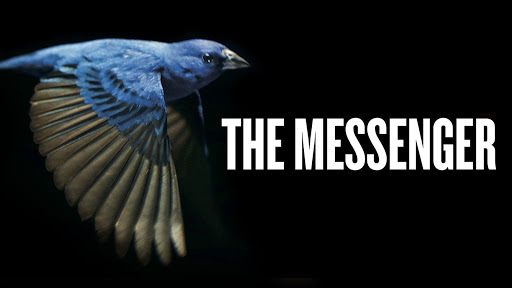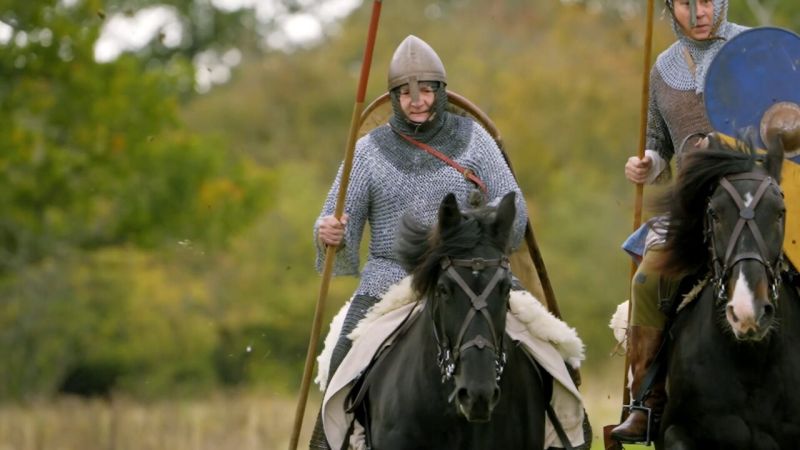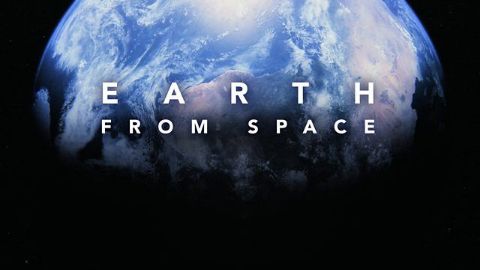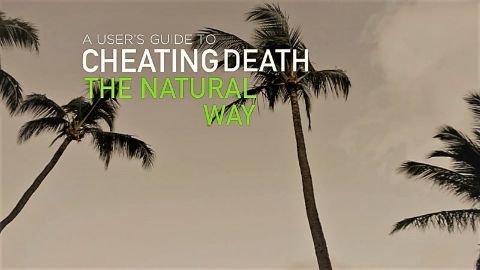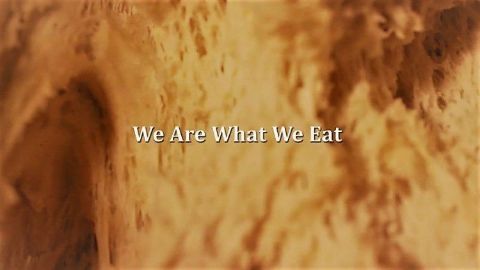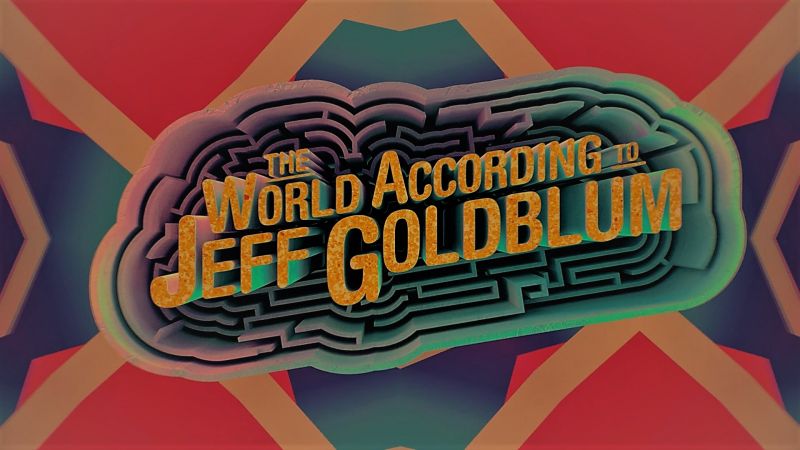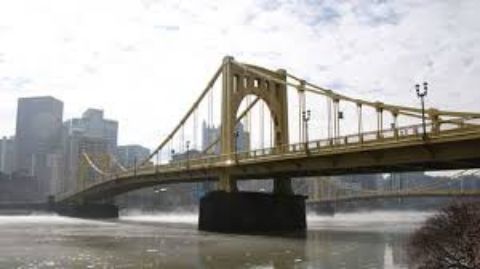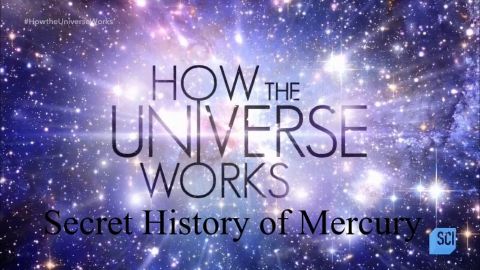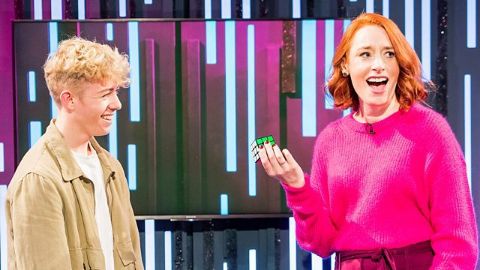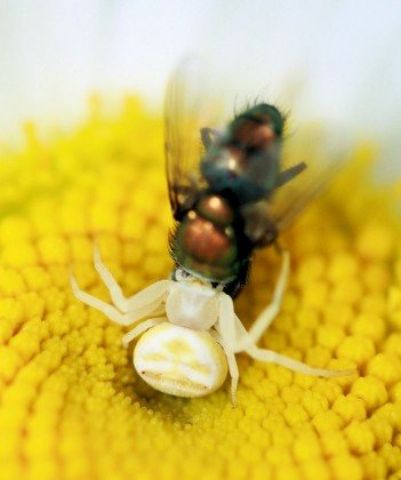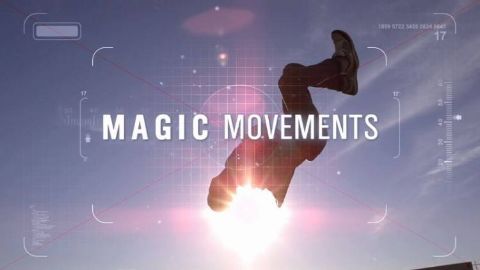The Messenger explores our deep-seated connection to birds and warns that the uncertain fate of songbirds might mirror our own. Moving from the northern reaches of the Boreal Forest to the base of Mount Ararat in Turkey to the streets of New York, The Messenger brings us face-to-face with a remarkable variety of human-made perils that have devastated thrushes, warblers, orioles, tanagers, grosbeaks and many other airborne music-makers. In ancient times humans looked to the flight and songs of birds to protect the future. Today once again, birds have something to tell us.
2015 • Nature
Tells the story of the Sinclair ZX Spectrum. This film goes into all the finer details of how and why the ZX Spectrum was created, what impact the computer had as well as the various versions that followed right the way through to the latest iteration of the system with the ZX Spectrum Next. Complete with interviews from industry legends.
2024 • Technology
Luminous tells the story of the first astronomer in history to publicly predict the near-future explosion of a star--will he be right? Others in the astronomical community are skeptical, and professional reputations hang in the balance. In production for five years, Luminous follows Larry Molnar's journey to test an unprecedented prediction, knowing that its success or failure will unfold squarely in the international spotlight.
2022 • Astronomy
When Apollo astronaut Gene Cernan stepped on the Moon in December 1972 he left his footprints and his daughter's initials in the lunar dust. Only now, over forty years later, is he ready to share his epic but deeply personal story of fulfillment, love and loss. Cernan's burning ambition carried him from a quiet Chicago suburb to the spectacular and hazardous environment of space, and ultimately, to the Moon. Five years in the making, The Last Man on the Moon unveils a wealth of rare archive material, and takes Cernan back to the launch pads of Cape Kennedy, to Arlington National Cemetery and to his Texas ranch, where he finds respite from a past that refuses to let him go.
2014 • Astronomy
The shocking story of Aum Shinrikyo, the doomsday cult that unleashed a deadly nerve gas in Tokyo's subway system in 1995. Founded by disillusioned yoga teacher Shoko Asahara, Aum transformed into a terrorist organization while Japan's police and media turned a blind eye. Featuring rare archival footage and an interview with one of Asahara's former high-ranking disciples.
2023 • People
The inside story of the tech entrepreneurs who created the social media app Twitter. At first the site grew on the back of celebrities who realised it offered them a direct way to communicate with fans. After going global, it seemed to be fulfilling the founders' dream of a digital utopia where all voices would be heard. But as hate speech and misinformation flooded the platform, the founders faced growing problems to control it - and the sale to Elon Musk in 2022 represented the end of their dream.
2025 • Technology
Explore Tulum, the final inhabited city of the Maya empire, where innovative archaeology and cutting-edge technology reveal the mysteries behind the collapse of one of Mesoamerica's greatest civilisations.
2023 • History
From battlefields and ancient swords to mighty castles and Durham cathedral, the rich, brutal story of William the Conqueror's journey from invader to ruler of England. Alice Roberts discovers who the Normans really were, tests a nearly thousand-year-old sword from William the Conqueror's time and wonders why there are so few women depicted in art from the time. Plus, Danielle George gets a brutal lesson in medieval 11th-century battlefield combat techniques, and Onyeka learns how William's coronation turned into a PR disaster.
S1E4 • Fortress Britain • 2022 • History
Tales of Cold War Britain, from nuclear threat to upper-class spies, eerie ghost bunkers and our very own Chernobyl. In Cold War military buildup Britain constructed bunkers for the civilian population and created its own nuclear missile defense. Professor Alice Roberts explores the UK's response to the threat of nuclear attack during the early years of the Cold War in the 1950s, when a network of upper-class spies began merrily sharing British military secrets with the Soviet Union. We also visit a nuclear-bomb-proof command center and inspect the legendary Avro Vulcan jet bomber.
S1E3 • Fortress Britain • 2022 • History
How Britain planned for a Nazi invasion - from tank traps and sticky bombs, to the Home Guard and tragic story of heroism. Alice Roberts looks for visible traces of Britain's rearmament in preparation for a German invasion. How did the Home Guard come about and what was the role of women in the offensive defense? We meet Indian-American Noor Inayat Khan, a special agent who worked with sabotage activities in German-occupied France, and hear her tragic story as one of the war's forgotten heroines. Alice learns about the deployment of the Home Guard, and Danielle travels to the Channel Islands, the only part of the British Isles under German control, to visit the only concentration camp built on British soil in Alderney. She explores life under occupation and visits the underground hospital Festung Guernsey.
S1E2 • Fortress Britain • 2022 • History
The story of Henry VIII's fear of Catholic Europe, told via his castles, cannons and spies. The first episode examines the surviving traces of Henry VIII's fear of invasion from Catholic Europe through physical reminders, including mighty castles and cannons, that survive to this day. At her headquarter in Walmer Castle, built in 1540 in Kent to defend the town against a French invasion, Alice gets her hands on a vast hoard of Tudor coins and a 500-year-old jousting scorecard, as she learns how Henry's greed and ambition led him to bankrupt the nation and lay the foundations for the modern secret service. Danielle visits Henry's mighty castle at Deal and witnesses the awesome power of the cannons built to defend England, while Onyeka gets within touching distance of the iconic Mary Rose.
S1E1 • Fortress Britain • 2022 • History
In 1966, drought and an exploding population confronted India with the imminent threat of a severe famine that many scientists and intellectuals feared was a harbinger of global catastrophes to come, as the world's population outstripped its ability to produce food. India turned to Norman Borlaug, an unassuming plant breeder from Iowa whose combination of scientific knowledge and raw determination had made him a legend among a small handful of fellow specialists. The Man Who Tried to Feed the World recounts the story of the man who would not only solve India's famine problem, but would go on to lead a "Green Revolution" of worldwide agriculture programs, saving countless lives. He was awarded the 1970 Nobel Peace Prize for his work but spent the rest of his life watching his methods and achievements come under increasing fire.
2020 • People
Dr Helen Czerski delves into the Horizon archive to chart the transformation of a little-known theory into one of the greatest scientific undertakings in history.
Satellites follow an elephant family struggling through drought, reveal previously unknown emperor penguin colonies from the colour of their poo, and discover mysterious ice rings that could put seal pups in danger. Using cameras on the ground, in the air and in space, Earth from Space follows nature's greatest spectacles, weather events and dramatic seasonal changes. This is our home, as we've never seen it before.
S1E1 • Earth from Space • 2019 • Environment
In the final challenge of the game of life, raising offspring is the ultimate prize. Continuing the line through the next generation, is the next best thing to immortality. But it’s far from easy... Some parents must risk their own lives for their offspring.
S1E6 • Life Story • 2014 • Nature
Growing distrust in GMOs, pharmaceuticals and non-natural solutions has pushed families to seek more 'natural' approaches to medical issues - sometimes with fatal consequences.
S1E5 • A User's Guide to Cheating Death • 2017 • Health
Early Earth was a canvas for the vast new palette of the colours of life, with the diversity of human skin tones telling the story of how humanity spread and ultimately conquered the planet. Dr Helen Czerski explores the true masters of colour - which are often the smallest and most elusive - travelling to the mountains of Tennessee to witness the colourful mating display of fireflies, and revealing the marine creatures that can change the colour of their skin in order to hide from the world.
S1E2 • Colour: The Spectrum of Science • 2015 • Physics
Nearly 40 million people are living with HIV. After decades of research and activism, how far have we come in finding a cure and battling the stigma?
S1E9 • History 101 • 2020 • Health
Our skin is the largest organ in our bodies, with a surface area of about 20 square feet in adults. When we are cut or wounded, our skin begins to repair itself through a complex, well-coordinated process. Sarthak Sinha takes us past the epidermis and into the dermis to investigate this regenerative response.
Julia Bradbury talks about her battle with the disease, filmed from the very early days of her diagnosis as she comes to terms with the news, and prepares for a mastectomy. The documentary features Julia's immediate family including her three children, her parents - both of whom are cancer survivors - and her older sister Gina, who are all impacted by Julia's diagnosis and intrinsic to her efforts to recover.
2022 • Health
In the opening episode, they explore how this chemistry fuels and builds our bodies. Michael begins by trying the first meal most of us enjoyed, human breast milk, which contains everything a baby needs - fats, carbs, vitamins and minerals. As we grow, we continue to seek the same chemistry in our diet but from a wide variety of scrumptious fare as Michael and James discover. In San Francisco, they unravel why sourdough bread is so good for us, in the Philippines, they learn how a river weed - rice - has become a comforting staple food, and in Bulgaria, they discover why letting your mushrooms sunbathe may help you get a calcium boost from your dairy food.
S1E1 • The Secrets of Your Food • 2017 • Health
As the narrative goes, fat is bad. Well, it's actually more nuanced than that. The type of fat you eat is more impactful on your health than the quantity. George Zaidan examines triglycerides, the varied molecules that make up fat, and how to identify which types of fat you are consuming.
What is a virus? How does it affect humans and how does it spread? Doctors, virologists and scientists examine the spread of the Zika virus, what effect this growing epidemic may have on large populations, and possible next steps to stop the illness.
2016 • Health
Imagine a world in which you can think but cannot speak. For many stroke survivors, like former football star Junior and landlord Barry, this nightmare is a reality. Inspired by the experience of his brother-in-law, filmmaker Richard Alwyn has made an intensely moving, personal film about language and its loss. Alwyn's brother-in-law, journalist Dennis Barker, had a stroke in 2011 which left him speaking a bizarre, fluent gibberish – just one manifestation of the condition ‘aphasia' in which people lose or have a severely impaired ability to use language. Speechless tells the powerful stories of two men who can no longer take language for granted. Much of the film is made on the Neuro Rehab Unit of the National Hospital for Neurology and Neurosurgery in London's Queen Square. There, Alwyn meets 55 year old Barry who has been in hospital for 4 months since a stroke left him barely able to speak. Courageous and determined, Barry's personality constantly triumphs where his language fails. And two years after his stroke when just 35 years-old, former Premier League and international footballer Junior Agogo is still visiting the Unit as he battles to find his way in the world with depleted language. “I had thoughts but I'm saying, where was my voice? I was baffled, man.” Speechless raises questions that straddle philosophy and science. Can we understand the world if we don't have language to name and describe it? Can we think without language? How much is our identity wrapped up in language? These questions are at the heart of conversations that Alwyn has with clinicians and therapists working to get Barry and Junior back into the world. Speechless is fascinating and moving, upsetting and uplifting in its depiction of the isolating and estranging condition, aphasia.
2017 • Brain
In the final episode Dr Alice Roberts explores how our species, homo sapiens, developed our large brain; and asks why we are the only one of our kind left on the planet today?
S1E3 • Origins of Us • Brain
In the first episode, we are exploring technologies that promise to provide humans with superpowers, and witness experiments that are literally changing minds!
S1E1 • Supersapiens Rise of the Mind • 2017 • Brain
A 200,000 year old jawbone tells the story of an elderly woman who was kept alive thanks to the kindness of her companions. From this first known example of human compassion to modern day heroes, the final programme in the Human Instinct series explores the most complex of instincts. The instinct to put others first.
S1E4 • Human Instinct • Brain
Todd pushes his senses to the limits to unleash his brain's full potential.
S2E2 • Redesign my brain • 2015 • Brain
Jeff puts his brain to the test as he embarks on an adventure with some bona fide geniuses to discover our fascination with puzzles. From working with a team of escape room enthusiasts and landing planes to a wild jazz improvisation session with Shimon, a marimba-playing robot, Jeff discovers how puzzles are more than just a hobby; they are the means through which we solve some of life's greatest problems.
S2E6 • The World According to Jeff Goldblum • 2021 • Brain
We examine how things taste, and how vital scent is from the animal perspective. But their sense of smell will also detect the scent of odorants carried through the air. In mammals, taste receptor cells are scattered over the tongue but how they work underwater, well, it's a whole other world.
S1E4 • Animal Super Senses • 2020 • Nature
Can new engineering techniques help prevent deadly bridge collapses? In 2018, Italy’s Morandi Bridge collapsed, tragically killing 43 people. For 50 years, the iconic bridge had withstood the elements—and stress from ever-increasing traffic. What went wrong that fateful day? And how can new engineering technology protect bridge infrastructure to prevent such tragic failures in the future? Through eyewitness testimony, expert interviews, and dramatic archival footage, NOVA investigates the Morandi disaster and other deadly bridge collapses.
NOVA PBS • 2019 • Technology
Mercury is a deadly world, facing attacks from the sun, comets, and other planets, and even though it's the smallest planet in the solar system, it has a dangerous secret a dangerous secret that might one day threaten life on Earth.
S6E6 • How the Universe Works • 2018 • Astronomy
Dr Hannah Fry reveals how data-gobbling algorithms have taken over our lives and now control almost everything we do, without us being aware of it. Pitching the UK speed-cubing champion against a machine in the opening seconds of the lecture, Hannah sets the pace for a rapid voyage through this superhuman world. Hannah teams up with famed YouTuber Tom Scott to create a viral video and decipher YouTube's secret algorithm, comes face to face with four-legged guests to put animal image recognition machines to the test, and reveals how the NHS is matching organ donors in chains across the country to save hundreds of lives. But the breakthroughs are not restricted to the real world. Bafta award-winning special guests reveal the secrets of CGI in films such as The Avengers and Lord of the Rings, and supersized laser illusions bring the Royal Institution to life. An unexpected feathery guest opens our eyes to a new type of coding, where computers can be trained like animals using tasty rewards, with maths comedian Matt Parker and computing expert Dr Anne-Marie Imafidon bringing the topic to life. Finally, Hannah reveals how we've all been training up Google's AI in this way for years without realising it, and discovers how Google Health is using big data to give doctors a helping hand. The power of algorithms is undeniable. Hannah ultimately discovers how we can bend the world to our will and make anything possible, with a bit of mathematical thinking.
S1E2 • Royal Institution Christmas Lectures: Secrets and Lies - The Hidden Power of Maths • 2019 • Math
The penultimate episode focuses on the relationships between invertebrates and plants or other animals. It begins with ants and aphids: the former 'herd' the latter and protect them in return for secreted honeydew.
Part 4 • Life in the Undergrowth • 2005 • Nature
We cannot see things like the movement of a sponge because its movements are too slow. But with specialized photography we can see imperceptibly slow and fast movements. See the dynamics of a child's first steps, rainfall, nocturnal animals and butterflies in flight-and the incredible archer fish.
S1E1 • Invisible Universe • 2016 • Technology
